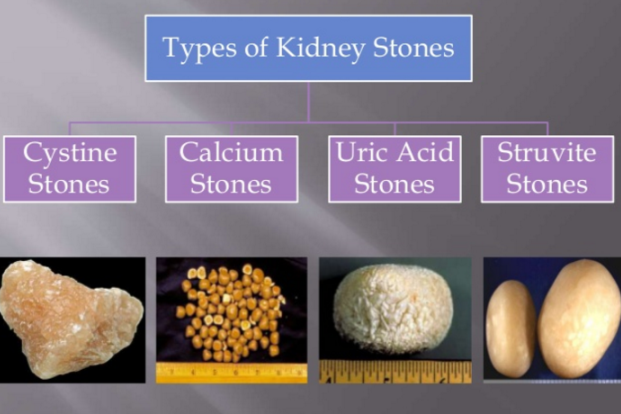Checking Out Kidney Stones vs UTI: A Clear Overview of Causes, Signs, and Solutions
Checking Out Kidney Stones vs UTI: A Clear Overview of Causes, Signs, and Solutions
Blog Article
Exploring the Manifestations and Causes of Kidney Stones in Contrast to Urinary Tract Infections: A Detailed Guide
The expedition of kidney stones and urinary system system infections (UTIs) exposes an intricate interaction of symptoms and underlying reasons that require mindful assessment. What are the crucial distinctions in their signs and symptoms, and just how might these inform therapy strategies?
Review of Kidney Stones
Kidney rocks, also referred to as kidney calculi, type when particular substances in the urine crystallize and accumulation, resulting in the growth of hard down payments within the kidneys. These rocks can vary in dimension, varying from a grain of sand to a golf sphere, and can be composed of various products, one of the most common being calcium oxalate, uric acid, struvite, and cystine. The development of kidney stones is influenced by several variables, including nutritional routines, liquid consumption, and genetic predisposition.
Signs of kidney stones may consist of serious pain in the back or side, blood in the urine, nausea, and constant urination, especially as the rock relocates through the urinary tract. Diagnosis typically includes imaging researches such as ultrasound or CT scans, alongside urinalysis to determine the rock's make-up.
Therapy options vary based on the dimension and sort of stone, in addition to the intensity of signs (Kidney Stones vs UTI). Tiny stones may pass normally with boosted liquid intake, while larger rocks might call for clinical treatments such as lithotripsy or surgical removal. Recognizing the pathophysiology and danger aspects connected with kidney stones is essential for effective avoidance and management
Review of Urinary Tract Infections
Urinary system system infections (UTIs) are common bacterial infections that affect any kind of part of the urinary system, consisting of the kidneys, ureters, bladder, and urethra. They mostly happen when germs, usually from the gastrointestinal tract, go into the urinary system, leading to inflammation and infection.
The frequency of UTIs is notably greater in women than males, mostly as a result of physiological distinctions, such as a much shorter urethra. Threat elements include sex, particular contraceptive methods, urinary system retention, and dehydration. The diagnosis of UTIs is generally confirmed through pee tests, which may disclose the presence of bacteria, white blood cells, or red blood cells.

Signs And Symptoms of Kidney Stones
The discomfort related to kidney rocks can manifest in numerous ways, commonly leading individuals to look for clinical focus. One of one of the most common signs is severe pain, typically local in the reduced back or side, which may emit to the abdomen or groin. This pain, usually defined as sharp or cramping, can take place unexpectedly and might rise and fall in strength.
In addition, individuals may experience hematuria, or blood in the urine, which can vary from microscopic total up to noticeable discoloration. This symptom may be gone along with by changes in urinary system behaviors, such as raised regularity or necessity, in addition to discomfort during urination. Nausea or vomiting and vomiting are additionally widespread, typically arising from the body's response to extreme discomfort.
In many cases, people may experience high temperature and chills, particularly if a second infection creates as a result of the blockage created by the rocks. Overall, the combination of serious pain, hematuria, modified urinary system patterns, and stomach signs and symptoms can supply significant understanding right into the presence of kidney rocks, calling for timely clinical analysis and intervention. Recognizing these signs and symptoms is essential for timely diagnosis and efficient management of the condition.
Signs of Urinary System System Infections
Infections within the urinary system usually provide a variety of distinct signs and symptoms that can dramatically affect day-to-day live. The most typical signs include a persistent urge to pee, usually come with by a burning sensation throughout urination, referred to as dysuria. Individuals might also experience raised regularity of peeing, producing percentages of urine each time.
Other remarkable signs and symptoms consist of smelly or gloomy pee, which might show the presence of germs or pus. In some instances, pee may appear pink or red due to the presence of blood, a condition referred to as hematuria. In addition, people may experience pelvic pain or stress, which can better worsen the feeling of seriousness.
Systemic signs and symptoms may also materialize, such as high temperature, chills, and tiredness, specifically if the infection has risen to the kidneys. It is vital to identify these symptoms early, as unattended urinary system infections can cause much more extreme difficulties. Kidney Stones vs UTI. Motivate clinical focus is suggested when these symptoms are observed, enabling for ideal analysis examination and therapy to relieve discomfort and avoid additional wellness concerns
Root Causes Of Each Condition
Often, kidney stones and other urinary system system infections develop from distinct yet occasionally overlapping reasons that can affect individuals in different ways. Kidney stones commonly develop because of metabolic aspects, nutritional choices, and hereditary proneness. Raised degrees of calcium, oxalate, or uric acid in the urine can result in rock development. Dehydration, insufficient fluid consumption, and high-sodium diet plans can aggravate these conditions, advertising condensation within the urinary system system.

Comprehending these distinct reasons is critical for prevention and treatment. Kidney Stones vs UTI. While lifestyle alterations might minimize the danger of kidney stones, ideal hygiene and timely therapy of urinary Discover More system tract infections are crucial for minimizing their recurrence and associated complications
Final Thought
In recap, kidney rocks and urinary system tract infections present distinct symptoms and underlying reasons. Kidney rocks are characterized by extreme discomfort and metabolic factors, while urinary system my sources tract infections mainly involve bacterial infections causing urinary urgency and discomfort. Both problems can result in hematuria, their development mechanisms vary considerably. Understanding these distinctions is important for effective diagnosis and therapy, eventually improving individual end results for those influenced by either condition.
The exploration of kidney stones and urinary system tract infections (UTIs) reveals a complicated interplay of signs and symptoms and underlying causes that necessitate mindful evaluation.Urinary system tract infections (UTIs) are common microbial infections that influence any type of component of the urinary system, including the kidneys, ureters, bladder, and urethra.Regularly, kidney rocks and urinary system system infections arise from distinct yet occasionally overlapping reasons that can influence people in a different way.In summary, kidney rocks and urinary system tract infections present unique signs and underlying reasons. Kidney stones are defined by extreme pain and metabolic aspects, while urinary system system infections primarily include microbial infections leading to urinary system necessity and discomfort.
Report this page